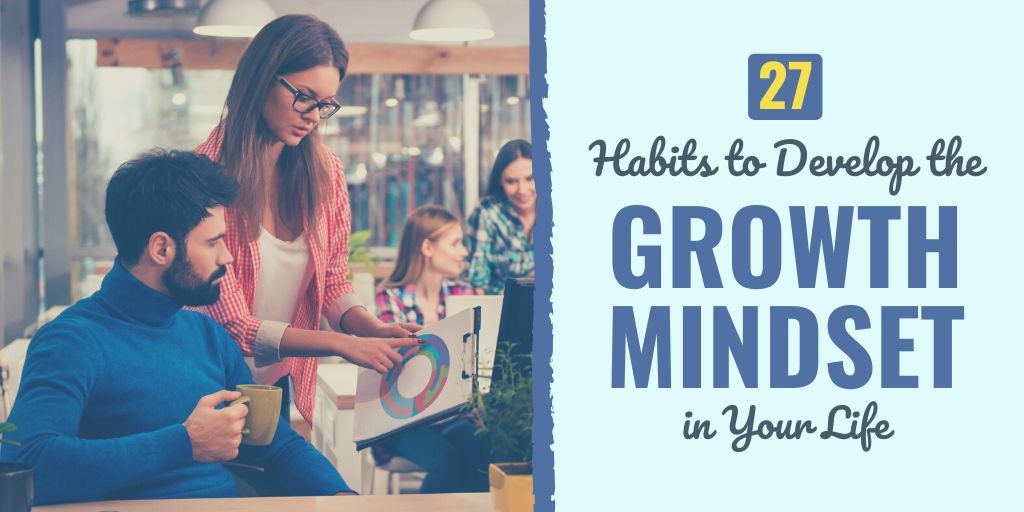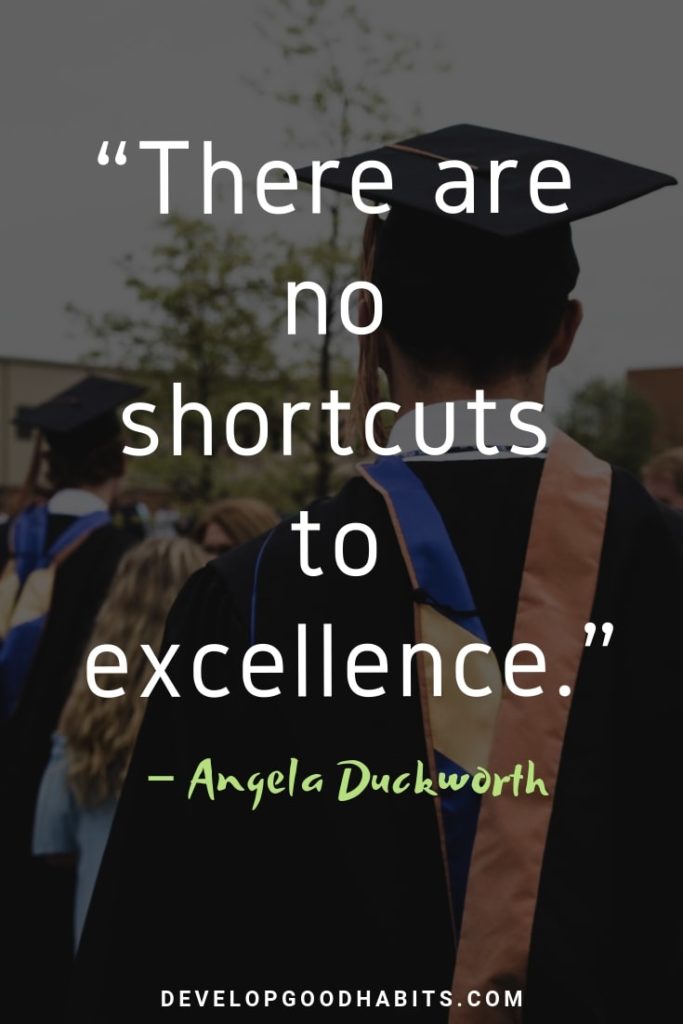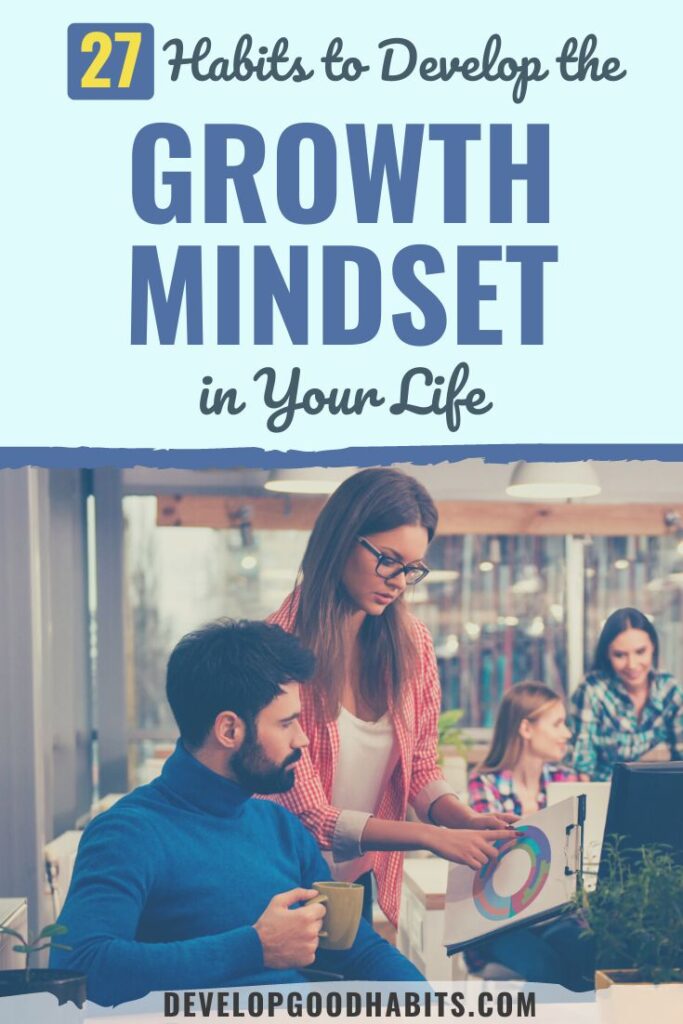There might be affiliate links on this page, which means we get a small commission of anything you buy. As an Amazon Associate we earn from qualifying purchases. Please do your own research before making any online purchase.
The sky’s the limit for people with a growth mindset.
Unlike people with a fixed mindset, those with a growth mindset embrace challenges and criticism because they see these things as opportunities to grow and learn new ways of doing things.
These warriors have a winning mindset and will do what it takes to get the job at hand accomplished. They’re inspired by the success of others and they consider themselves to be life-long learners.
Do you relate to this? If so, you’re living with a growth mindset.
Alternatively, you may avoid challenges and let any feedback or criticism go in one ear and out the other.
If you run into an obstacle, do you stop and turn around, assuming that it’s best to give up now since you don’t know how to navigate the issue?
Do you feel insecure about your work and are often envious of those whom you see succeed?
If so, your mindset is fixed. And while I’m pretty sure you don’t believe you can change your mindset, you can.
In this article we are going to look at specific things you can do to develop a growth mindset, which will open new doors for you in your life to help you flourish unlike ever before. But first, let me explain to you how this is a personal trait that you have the power to change.
How Mindsets are Formed
How is a fixed mindset created to begin with?
Carol Dweck, a Professor of Psychology at Stanford University, has devoted a lot of her research to implicit theories of intelligence. She posited that there are two types of mindsets that people hold, and whichever one you have has a great impact on your life.
Dweck separates people into two groups,, with some people believing their success stems from their innate abilities, and others believing their success is a product of their hard work, continued learning, and perseverance.
So how are these mindsets created in the first place?
Dweck’s research uncovers two main sources of the root of our mindsets: praising and labeling. When we are growing up and our parents and teachers praise and label us, they’re unintentionally laying the foundation for our future mindsets.
In her studies, she found that students who were praised for their abilities developed a fixed mindset and those praised for their efforts developed a growth mindset.
For more examples of fixed mindset vs. growth mindset, check out this post. Or better yet, watch the video below:
In further tests, the students who were praised for their abilities tended to reject new challenges and avoided doing tasks that could expose a shortcoming, and their performance took a nosedive.
In contrast, many students who were praised for their efforts reported they enjoyed the difficult problems more than the simple ones, and their performance continuously improved.
If you think about it, you’ll notice that schools typically practice praising students’ abilities and judging them by labeling them by their test scores. Parents reinforce this at home by labeling behaviors or situations as being either good or bad.
And up until the late 1990s, scientists believed that the brain stopped growing once people reached adulthood. However, when neuroplasticity was discovered in 1998, scientists realized that the adult brain is actually able to grow new brain cells.
So, as long as our brains are healthy, we can learn new things as well as improve upon current skills. This is where the idea of a growth mindset comes into play.
So we now know that you can change your mindset. If you believe you have a fixed mindset, you can turn that around and open yourself up to new experiences and opportunities for learning.
You can go from this limited state of mind to cultivating talent through deliberate practice. By focusing on specific habits, you can gradually change your mindset and start embracing new challenges.
We know that skills and talents are built through repetition, so taking growth-oriented actions on a regular basis is what will ultimately change your mindset. While change will not occur overnight, each small improvement that you notice will be another reference point that proves your capacity to grow.
Every new skill you learn weakens your fixed mindset’s voice, until it’s eventually silenced.
Let’s take a look at some of the habits you can focus on to develop a growth mindset.
How to Develop the Growth Mindset in Your Life
1. Learn What a Growth Mindset Is
This is an important first step. Dweck noted in her research that simply learning about what a growth mindset is can lead to huge changes in how people view their learning abilities.
Knowing the difference between a fixed and a growth mindset opens up new opportunities for future learning that you may not have known existed.
Because of this, reading materials such as this article and Dweck’s book on mindsets can shift your perspective to being open to what’s possible.
To better understand this topic, check out these growth mindset examples.
If you also want to teach your kids, here are great books for children about the growth mindset and growth mindset videos they can watch on YouTube.
To get a better view on what mindset you currently have, take one of these growth mindset quizzes based on Dweck's work.
Read this article that further explores the benefits of developing growth mindset in life.
2. Develop Self-Awareness
Once you know the difference between a fixed and a growth mindset, you need to listen out for your inner critic when it’s telling you that you’ve hit your limit.
For example, when faced with a new challenge, do you ever stop and think I can’t do that? Or if you get criticized at work, do you try to pass the blame onto someone else? (Here are more examples of fixed mindsets.)
Being aware of this inner critic and its ability to limit you is an important part of silencing it.
3. Talk Back to It
Let’s say your company just went international. You joined forces with a similar company in Tokyo to build a worldwide market. Your fixed mindset voice says: I’m too old to learn a new language—even just the basics!
Here are some things you can say in response to that limiting belief:
Thinking in this way will help boost your motivation to try. It will help you realize you have nothing to lose and a lot to potentially gain.
Check out our post on growth mindset statements to help you stay on track.
4. Seek Out New Opportunities
If you hit a point where you’re recognizing the fixed mindset voice holding you back, take action. Take on that new challenge, learn from that mistake and try again, persist until you succeed, adjust your method based on others’ feedback.
Whatever you do, don’t simply quit with the belief that you have hit your limit.
Start by trying something new that you’re interested in but perhaps never believed would be possible.
5. Ask Yourself Specific Questions
After responding to a fixed mindset thought with a growth mindset attitude, there are a few questions you can ask yourself to determine your upcoming action plan:
These questions will spark motivation and a sense of direction for what you need to do to succeed.
6. Recognize the Basis of Your Fixed Mindset
Fixed mindsets emerge from fear. Maybe you’re scared of failing, being judged by your peers, or looking dumb, but fear is what ultimately holds people back from reaching their potential. You have to embrace the fear to be able to change your mindset.
Welcome fear as being the emotion that it is. Learn to stay present with this emotion and try to become comfortable in its presence. Eventually, your fear will not seem like it’s such a big deal, and it will stop dictating your actions.
7. Embrace Your Imperfections
If you deny your imperfections or hide from them, you won’t face them or do anything to overcome them. If you notice that you have an area for potential improvement, face that challenge and address your imperfections.
And remember, imperfections are relatable. Embracing the imperfections that you have attracts other people because you become approachable. Keep in mind that there is always room for improvement, there is always room to learn.
8. Accept Challenges
You will always face challenges. No matter if you’re simply trying to get to work on time or you’re learning an entire new language, challenges are a part of everyday life.
Rather than trying to avoid challenges because you’re scared of failing, embrace them and show yourself you can succeed. If you succeed, you’ve proven to yourself that you can do that skill.
In one of Carol Dweck’s studies, she asked a group of people with various mindsets a sequence of complex questions. The subjects’ brain activity was studied as they were told if their answers were right or wrong.
The study found that people with a fixed mindset only cared about the answers they got right, while those with a growth mindset were eager to see what they did wrong so they could learn from their mistakes.
This shows that no matter if their answer is right or wrong, people with a growth mindset want to pursue all challenges and learn from their mistakes.
9. Don’t Look to Others for Approval
Getting approval from other people can actually inhibit a growth mindset. This is because you may feel like once you obtain approval, you’re “done”.
Focus more on self-acceptance and don’t worry about what other people are thinking. Trust yourself and recognize you’re the only person who will always be around, which means you’re the only person that you really need to impress.
10. Act With Authenticity
Pretending to be someone you’re not is disrespectful to your true self, as it detracts from all of the great things you have to offer.
Becoming a truly authentic person is a slow process that requires deep inner work, however, once you’re able to live authentically, you will be more motivated to pursue the goals that mean the most to you. This in itself will put you in a growth mindset.
11. Discover Your Why
Do you feel like you live with a sense of purpose? If so, define what that purpose is in order to discover the “why” behind your existence.
If you’re unsure, try practicing some meditation so you can contemplate your purpose. Ask yourself questions such as:
Any themes that seem to arise will point toward your purpose.
12. View Failure as a New Beginning
If you have attempted something and failed, it doesn’t mean all is lost and you should forget about that project. Failure is really just the first step toward success. If you quit because of a small setback, you’ll never get on the right track toward your goals and dreams.
Head on over to this article to be surprised at some people who famously failed. However, they were all able to view their failures as new beginnings.
13. Reward Yourself
You don’t need other people to give you special recognition if you achieve something that you’ve been aiming for.
Simply being able to believe in yourself and making an effort to congratulate yourself on learning something new or attaining one of your goals can be extremely motivating and it helps open up even more opportunities for the future.

So make time to celebrate your achievements. Your newfound belief in your abilities directly affects your motivation to persevere and fulfill your ultimate potential.
14. Try New Learning Tactics
Everyone learns in different ways. If you feel like there is something that you simply cannot do, you may not have been learning it in a way that helps your brain retain the information.
There are so many different ways to learn, and once you recognize how you learn the best, learning will become easier for you and more exciting.
15. Do Some Research
If you research brain plasticity you will find endless articles on the science behind how our brain works. To develop a growth mindset, you may need that physical proof that your brain can, in fact, continue to learn long after you walk across the stage and accept your diploma.
Doing some research on brain plasticity can be motivating because when you know that you can exercise and actually grow your brain, you will want to find opportunities to do so.
16. Value the Process More Than the Result
When you pick a new skill that you want to learn, it’s probably safe to say that you want to practice this skill because you enjoy it. You have a sense of intrinsic motivation that drives you to enjoy the process, rather than just doing the work so you can get something in return.
For example, let’s say you love running. You enjoy being outdoors and feeling your feet hit the pavement. You’re training for a marathon and you’re not quite sure if you’re going to be able to finish. However, each training run that you embark upon benefits you because you value the activity.
In the end, let’s say you didn’t finish the race. Well, not much was lost because you were able to spend all of those hours running and improving yourself, and that marked improvement is certainly a victory.
17. Compete With Yourself
As soon as you get going with learning something new, compete with your old self. Each week, try to get just a little better and these gains will compound over time to bring you great success.
This challenge lines up well with the idea of a growth mindset because you’re continuously learning and improving.
18. Learn From Your Mistakes
The feeling of setting yourself back when trying to reach a goal in addition to the sense of shame that is imposed by society when people make mistakes explains why a lot of people simply give up on their goals.
They’re unprepared to handle the mistakes they’ll face along the way.
But if you’re able to accept the fact that you will make mistakes, it will open your mindset to be willing to learn from them.
19. Listen to Feedback
Upon making mistakes, make yourself willing to hear feedback and take it seriously, as you now know that your method wasn’t the best way or the only way. Now, you’re receptive to new perspectives out of necessity, which is a trait of someone who has a growth mindset.
20. Cultivate Grit
Angela Duckworth has done extensive research on grit, which defines your perseverance to meet your goals.
It is a combination of how much effort you’re willing to put forth to accomplish something and your drive to keep moving despite any challenges when the reward is still out of reach. In order to have a growth mindset, you have to cultivate grit.
To develop grit, you have to do anything it takes to improve your skill of choice every day. You also have to believe that progress can be made, you can improve, and you can succeed if you’re putting in the necessary work.
21. Add “Yet” to Your Vocabulary
If you’re trying to reach a goal and you're having a hard time getting there, keep telling yourself, “not yet.” This will serve as a good reminder that you will eventually reach that goal, the time just hasn’t quite arrived.
22. Learn from Other People’s Mistakes
You can benefit when someone else makes a mistake, you don’t always have to leave it up to your own mistakes to learn from. Talk to people about their mistakes and where they think they went wrong and how they may change things in the future.
23. Reflect
I would be willing to bet that you can think of something that you are better at doing right now than you were 10 years ago. A hobby? A sport? Or maybe you’ve just gotten a lot better at your job.

No matter what mindset you think you have, you can probably think of something that you weren’t initially good at doing, but you eventually got the hang of it. Reflecting on the skills that you have improved throughout your life will help you recognize that you can learn and improve.
24. Adopt a Positive Attitude
Our brains are hardwired to think negatively. This means that you will innately consider the bad things that could come out of a situation before considering the good. So how do you overcome this basic human tendency?
The good news is you can overcome your chronic negative attitude using tools and techniques to increase your ability to have a positive attitude. One of these tools includes practicing gratitude.
To build a positive brain, it helps to be mindful during positive moments so you can strengthen the neurological pathways in your brain that activate when you’re happy.
A critical part of adopting a positive attitude is having positive experiences in the areas of your life that you want to improve and then allow those experiences to sink in.
If you don’t practice reflection and gratitude for the positive moments in your life, the experiences won’t effectively become a part of your neural structure.
25. Don’t Let Others’ Negativity Affect You
You will never make everyone happy, and there will always be those people who discredit your dreams or try to talk you out of achieving them.
People will put you down along the way, but despite any comments that can lead to negative feelings and even self-doubt, the easy solution is to not listen.
You are going after new things because you believe in yourself and you’re doing what’s best for you. Filter the feedback you get, both from yourself and others, and determine whether it comes from a growth mindset or a fixed mindset.
26. Choose Your Words Wisely
The manner in which you speak to yourself and to others is an important part of developing good relationships that can ultimately lead to new opportunities and adventures.
One way to practice your speaking is by reading. Reading will expand your vocabulary, increase your confidence, and help you become a better listener, which is an important component to communication.
If your words are negative, the results will follow suit. Listen to your thoughts and words and censor yourself by replacing any negatives with positives.
27. Change the Culture
How can you improve your interactions with your colleagues and your family to encourage a growth mindset culture? If people around you also have this mindset, you will be much more likely to hold onto it.
Encourage people around you to constantly be learning or growing in some way. If you hear negative talk, like a colleague saying he just can’t get this new project up and running so he is going to quit, step in and encourage a growth mindset.
Help your colleagues look for some new solutions or give them a new perspective so they can make any endeavor a success. One creative way of conveying the idea of having a growth mindset as a positive trait is to display some of the best growth mindset bulletin boards.
Final Thoughts on Habits to Develop the Growth Mindset
In this article, we went over some of the research and science behind a growth mindset and how developing one can have a strong impact on your future success.
By adopting the habits listed in this article, you can open your mind and your future to opportunities you may have never otherwise considered. Dream big and move forward knowing that you can learn anything.
If you're a parent who wants to teach your child about the growth mindset, check out these articles:
- 9 Ways to Teach the Growth Mindset to Your Kids
- 27 Growth Mindset Coloring Pages for Your Kids or Students
- 30 Growth Mindset Phrases to Encourage Children
Finally, if you want to take your goal-setting efforts to the next level, check out this FREE printable worksheet and a step-by-step process that will help you set effective SMART goals.

Connie Mathers is a professional editor and freelance writer. She holds a Bachelor's Degree in Marketing and a Master’s Degree in Social Work. When she is not writing, Connie is either spending time with her daughter and two dogs, running, or working at her full-time job as a social worker in Richmond, VA.




